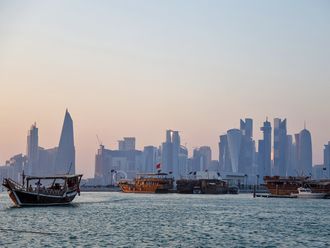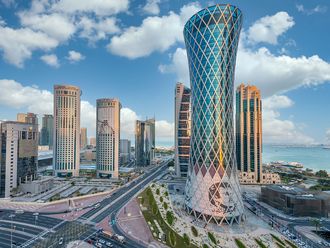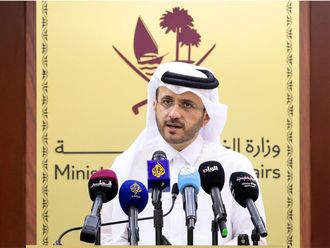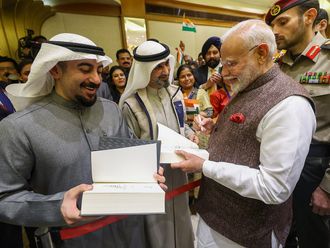Doha: Qatar has granted $150 million to the Palestinian Authority (PA) to help revive its economy as peace talks with Israel have run aground, Palestinian Prime Minister Rami Hamdallah said on Wednesday. The PA, which relies on foreign aid to plug a chronic budget deficit, has long struggled to pay salaries of some 170,000 civil servants and finance the costs of running main services in the occupied West Bank and the Gaza Strip. Gaza’s only power plant was forced to switch off its generators earlier this month due to a shortage of fuel which the PA has been unable to pay for.
“We asked for $150 million, and the emir was very accepting of this. We hope it will be granted at the soonest time possible,” Hamdallah told Reuters after talks with the Qatari Emir, Shaikh Tamim Bin Hamad Al Thani, in Doha.
“We have a lot of resources in Palestine but we are facing these economic problems because of the occupation,” he said.
Last month, US Secretary of State John Kerry said in Paris after talks with Qatari Foreign Minister Khaled Al Attiyah that Qatar had agreed to provide $150 million in debt relief to the Palestinian Authority.
Hamdallah had said in September that the PA needed to raise $500 million by the end of 2013 to allow it to continue functioning and pay its employees’ salaries.
Qatar has long been a supporter of the Palestinians. In 2012, the then-emir, Shaikh Hamad Bin Khalifa Al Thani, visited the Gaza Strip in a step seen as support for the territory’s Islamist Hamas rulers.
Shaikh Tamim, in his first public speech after he succeeded his father when he stepped down in June, steered away from Arab politics but stressed his continued support for Palestinians.
Hamdallah said Shaikh Tamim also promised this week to ease measures governing Palestinian employment in Qatar.
The World Bank said last month the Palestinian economy in the Israeli-occupied West Bank shrank for the first time in a decade in the first half of 2013, blaming a decline in foreign aid and myriad restrictions imposed by Israel.
The World Bank blamed the 0.1 per cent economic contraction on a decline in foreign budget support to the PA, saying this exposed the “distorted nature” of the economy.
Israel has pointed repeatedly to strong growth in the West Bank in recent years as vital to restoring relative stability to the area, so the news of a worsening outlook may raise concerns about a possible rise in unrest.
Palestinian Finance Minister Shukri Bishara, who accompanied Hamdallah to Qatar, said Palestinian GDP would marginally rise in 2013 despite the challenges.
“I would say the outlook for the economy right now is similar to last year, and I expect a fractional improvement in GDP growth if the situation doesn’t change,” he said without giving any figures.












